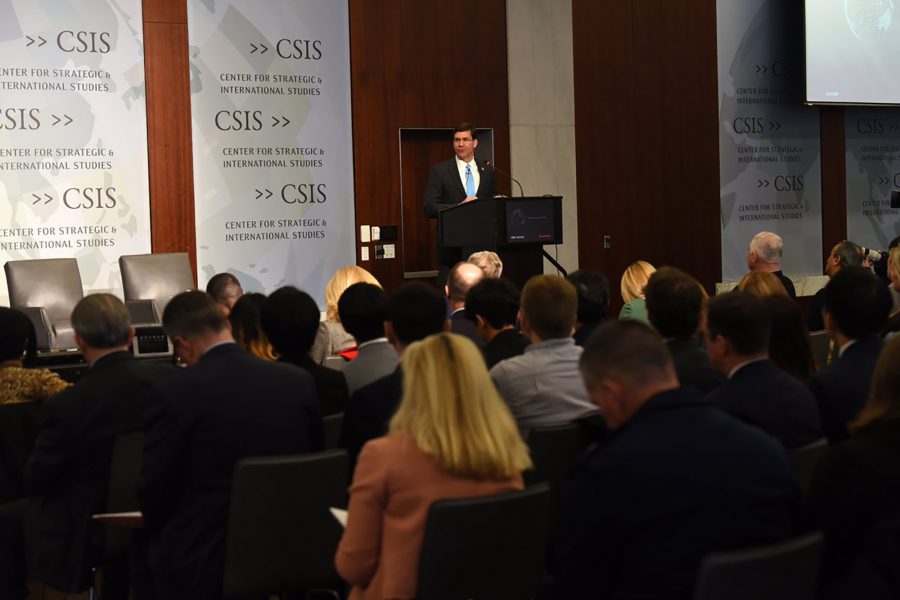Service efforts such as the Air Force’s pitch days for rapid contract awards are just the beginning of the Pentagon’s effort to move faster in its acquisition process, but much more work remains to make the five-sided building change its overall risk-averse culture, Defense Secretary Mark Esper said.
“The services are experimenting. That’s good, and we encourage that, but the thing we’ve really got to get at—and it takes time, and it’s probably the most difficult part and the hardest to change—is the culture,” Esper said at a Jan. 24 Center for Strategic and International Studies event in Washington, D.C.
“You have to get the culture right so that folks in the DOD, military, and civilian alike, are willing to put money down on something that may not be 100 percent, or 90 percent, or 80 percent. You’ve got to be able to take some risk and you’ve got to be able to accept some failure.”
The department has long talked about the need to accept some problems in the development of a new program in a greater push for speed and innovation. However, this has yet to be tested.
“The test will really come when something fails, and it fails not because of poor judgment or bad decisions, it fails because the technology wasn’t ready or it wasn’t designed properly, and we need to keep experimenting,” he said. “And we don’t overreact to that.”
The Pentagon needs to embrace its role of being a “fast follower,” so it can quickly adopt tech that is developed by private industry.
For example, the industry’s role in developing US-made 5G networks or artificial intelligence advancements are ripe for the department to pick up and adapt for military uses. The Pentagon has started this effort in 5G by installing commercially made 5G wireless networks at multiple bases in the country, including Hill AFB, Utah, and JB Lewis-McChord, Wash.
Even with this push though, there are still areas that can only be addressed by military development, Esper said.
“I don’t see the private sector on its own developing hypersonic weapons,” he said. “Those are areas where we have to put our own money in.”
